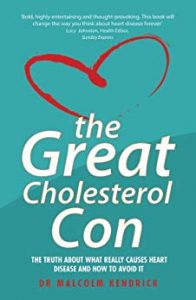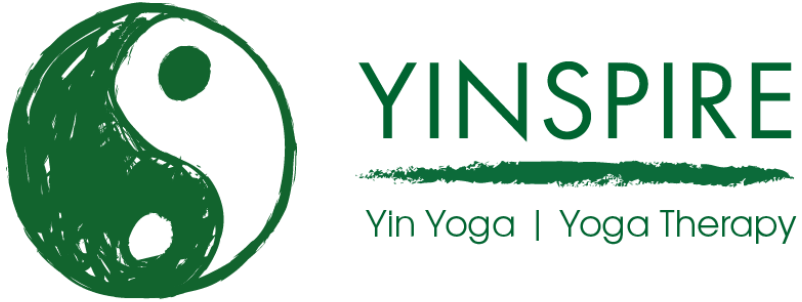 ‘The Great Cholesterol Con – The truth about what really causes Heart Disease and how to avoid it”
‘The Great Cholesterol Con – The truth about what really causes Heart Disease and how to avoid it”
Malcolm Kendrick is a Scottish GP, and a sceptic about the Cholesterol Hypothesis – the idea that raised “bad” Cholesterol causes heart disease, and by extension saturated fat, by virtue of raising cholesterol, increasing heart disease risk. He challenges this, questioning our understanding of Cholesterol synthesis in the body, and whether Cholesterol is the demon is painted as – and in fact there is evidence that Cholesterol can be protective of heart health, as Dr Kendrick explains.
Although Dr Kendrick’s writing is clear and informal, it is by its very nature partly scientific, and whilst I find it lucid and coherent, I’m not sure I understand enough to restate his challenge to the Cholesterol hypothesis. However what he writes certainly makes sense as he challenges research and orthodox understanding in the area – and in fairness he is not the only person doing so.
Having thoroughly dismantled the Cholesterol hypothesis he turns to his own hypothesis of the causes of heart disease, namely Stress. Whilst he covers this succinctly, it is perhaps disappointing that this doesn’t get more analysis, perhaps with suggestions for countering stress. However he covers what he does well, looking at the difference between “positive” and “negative” stress, and dis-regulation of the HPA axis, one of the most important stress control systems in the body. He looks at the correlation of heart disease and societal stress, using populations where there has been societal stress like foresee resettlement, and this certainly supports his hypothesis. He is of course not the only voice saying this – James Wilson touches on the same in his writing on Adrenal Fatigue, although his work is received with mixed views.
It all makes sense. Is it right? Well, caveat emptor. You’d need to draw your own conclusions when medical opinion varies so much, and changes so (comparatively) often. What is clear is that the distilled orthodox wisdom of lowering cholesterol is uncertain, and isn’t accepted across the whole field of medical research, and to a degree is propped up by big pharmaceutical businesses.
What is clear is that focusing on how we react to stress, the idea of “pain is inevitable, but suffering is optional”, is something that can significantly improve our health and wellbeing, cardiovascular and otherwise, and is something our Yoga and Mindfulness practices can assist with. This book correlates with that.
An interesting read, and one I’d recommend to anyone interested in this area, albeit read with a mixture of scepticism and enquiring mind.
